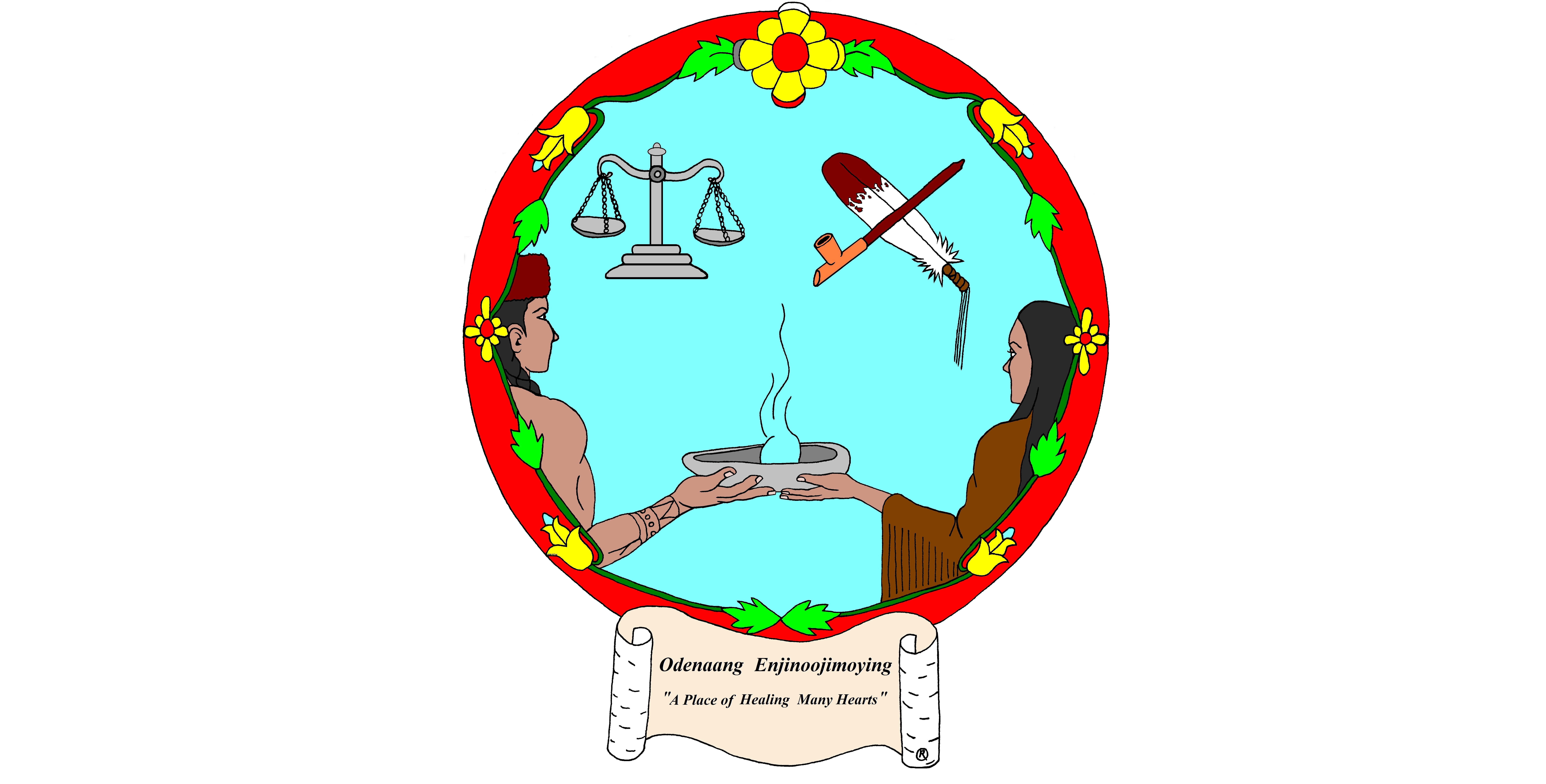Peacemaking Update:
The Peacemaking program is currently on hold as it undergoes a rebuilding phase. We appreciate your patience while we go through this process.
If you have any questions about Peacemaking in the interim, please contact the Tribal Court at (231) 398-3406.

PEACEMAKING
Odenaang Enjinoojimoying – A Place of Healing Many Hearts
Peacemaking plays an important role in indigenous justice practices. It is a traditional conflict resolution process that focuses on problem-solving and healing relationships. Participation in Peacemaking is voluntary, and it encourages people to solve their own problems in a safe environment. Sessions are facilitated by two Peacemakers, one male and one female, which helps to ensure that the process achieves balance and equality to all participants.
Who can participate in Peacemaking?
- Tribal members of all ages
- Tribal employees
- Members of other Federally recognized or state historic tribes
Can I utilize Peacemaking if I'm not involved in a court case? Yes, you can! The Peacemaking Program is designed to serve the entire Tribal community, offering support and assistance to all who need conflict resolution.
What types of issues can Peacemaking hear?
- Civil issues (including but not limited to)
- Disputes and conflicts between individuals and/or organizations
- Employee grievances and disputes
- Divorce disputes
- Juvenile Delinquency cases in Tribal Court
What happens in a Peacemaking session?
A Peacemaking session opens with prayer and smudging (with the participants’ consent) to begin things in a good way. Each session is facilitated by two Peacemakers (one male and one female). All participants are expected to be respectful and to adhere to the confidentiality policy of Peacemaking. Each participant will be given an opportunity to speak without interruption. The objective of Peacemaking is to reveal the issues or conflicts that exist between the parties and to bring understanding to each participant of the other’s view of the conflict. With the guidance of the Peacemakers, participants will come up with a resolution to their dispute. A written Peacemaking agreement will be prepared and signed by all participants. Additional Peacemaking sessions can be held at the participants’ request.
How do I start the Peacemaking process? To contact the Peacemaking program for assistance in starting the Peacemaking process, click here
Who can be a Peacemaker?
- A member of any federally recognized or state historic tribe who is at least 21 years of age
- An employee of the Little River Band of Ottawa Indians
Interested in being a Peacemaker? The Peacemaking program is actively recruiting a new generation of Peacemakers! If you would like to learn more about the training process to becoming a Peacemaker, click here